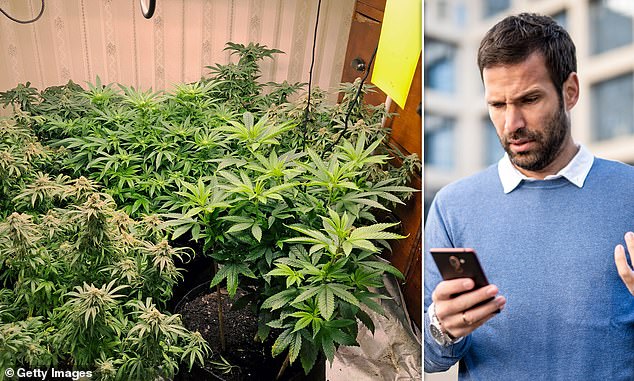Table of Contents
A fortnight ago I bought a lovely country property at auction for around £200,000, half of what I estimated it might be worth. I had only seen the house once and had not asked for a prior inspection.
However, my new neighbour told me that until two months ago, when the police closed the farm, it had been used as a cannabis grow house. The seller had rented the property and claimed to know nothing about illegal activities.
I later discovered that the electricity meter had been bypassed and there were many makeshift, pressure-fit pipes, while some of the floors were bowed, perhaps from the weight of the wet compost.
I am furious that the legal auction package for the property did not mention any of this other than the fact that it had no mains electricity, which I assumed was because it had been disconnected due to it being unoccupied.
Please, what are my rights in this situation? I want to get some kind of compensation from the seller, or ideally a full refund and walk away.
Growing Pains: This reader was shocked to discover that the house he had just purchased had previously been used for illegal purposes (stock images)
This is Money’s Sam Barker responds: I’ll put it bluntly: unfortunately, I’m afraid your rights in this case are very limited. This is a classic case of “buyer beware” where the buyer has not taken the necessary precautions.
However, a more optimistic way of looking at the situation is that you have purchased a home you like at a bargain price.
Even with the cost of any repair work, you will almost certainly still be able to sell the property for a large profit when you decide to move.
But I do sympathize with their current situation, which is probably more common than many of us think.
Police figures show that 90 per cent of cannabis sold in the UK is grown in rented properties, and I can only assume that the rural nature of his home was appealing as it offered some privacy.
It appears to have fallen into the chasm between the reduced scrutiny of properties purchased at auction and the limited amount a seller has to disclose in these situations.
Your case highlights the problems that can arise when buying a house without a survey, although I understand that this is often the case when buying a house at auction due to tight deadlines.
The inspection must be carried out before you bid, so you could spend £800+ on an inspection for a home that you are then outbid on.
In addition, arranging an inspection can be logistically complicated when dealing with auctioneers, who often only open the house for viewings on one day and have several people attend at the same time.
Unfortunately, the time to walk away from this house was before it was paid for, and it’s probably best to keep it unless there are issues with the house that the seller a) knew about and b) was obligated to disclose.
I spoke to London estate agents Benham and Reeves and chartered valuers Gates, Parish & Co to get to the bottom of their problem.

Has it gone up in smoke? Our reader is concerned about hidden damage to his new property
Benham and Reeves director Marc von Grundherr says: Buying a property at auction can be a great way to get a discounted home quickly, without the uncertainty of a traditional transaction timeline.
However, while auctions offer a number of benefits, they are also a popular way to get rid of properties with complex issues. As a buyer, you need to be really vigilant to make sure you know exactly what you are bidding on.
When a property goes to auction, any defects in title must be disclosed not only in the auction contract, but also through the auctioneer, for example in his prospectus.
These defects are often legal problems with the property that cannot be discovered during the inspection, such as drainage rights, restrictive covenants, existing leases, or local land charges.
If a seller fails to disclose matters like these, the buyer has every right to make a claim for misrepresentation.
However, this leaves a grey area when it comes to the property itself and any obvious physical defects that may be due to misuse by the former owner.
For example, in the case of a cannabis farm, any drainage system deviation or energy meter deviation would essentially fall among the defects that would be detected during an inspection and therefore would not be subject to the disclosure requirement.
David Parish of Gates, Parish & Co says: It often happens that cannabis is grown in the attic spaces of various properties, which can cause significant damage.
In my opinion, the property would not be saleable if there was still evidence of the illegal use when the property was offered for sale.
However, I believe that the property could be sold if it had been fully restored and any damage repaired. In other words, if a visitor saw the property in perfectly normal condition, I don’t think they would necessarily be put off by the property’s history.
However, I believe a seller would be required to disclose prior use in pre-contract enquiries, but as long as the property has been fully repaired and refurbished, the salability is unlikely to be negatively affected.
Of course, this assumes that the property is not in an area where there is antisocial behaviour and other similar drug problems.
Marc von Grundherr adds: It is also important to note that the seller may not be aware of any prior misuse, particularly if this is a property that has been foreclosed on and is being sold by a bank.
Don’t be afraid to ask questions, whether of the auction house, the seller, or even the neighbors of the property in question.
So, if you are thinking of buying a property at auction, it is important to take a proactive approach and the first step is to carry out your own inspection of the property. This will enable you to spot potential problems that could indicate previous misuse.
Be sure to review your auction packet to make sure nothing has been missed, and don’t be afraid to ask questions, whether of the auction house, the seller, or even the neighbors of the property in question.
The latter is usually the best approach to get a straight answer when it comes to any prior illegal activity.
It is essential that your solicitor reviews all legal documents before submitting an offer and whilst this and carrying out inspections will require an additional budget, it is well worth it when you consider the potential savings you could make, as well as avoiding the potentially high cost of rectifying a problematic property.
This is Money’s Sam Barker adds: Unfortunately, it seems the seller was within his rights not to mention cannabis cultivation, as long as he repaired any illegal damage.
Problems such as sagging floors are quite common in older properties, and the seller could easily – and possibly rightly – say that this had been the case all along and that the cannabis farm was not to blame.
His example shows how important it is to talk to neighbours before buying a house, whenever possible, and doing a proper survey before investing money will provide great peace of mind.
SAVE MONEY, EARN MONEY

Boosting investment

Boosting investment
5.09% cash for Isa investors

Cash Isa at 5.17%

Cash Isa at 5.17%
Includes 0.88% bonus for one year

Free stock offer

Free stock offer
No account fees and free stock trading
5.78% savings
5.78% savings
You have 365 days’ notice

Transaction fee refund

Transaction fee refund
Get £200 back in trading commissions
Affiliate links: If you purchase a product This is Money may earn a commission. These offers are chosen by our editorial team as we believe they are worth highlighting. This does not affect our editorial independence.
Some links in this article may be affiliate links. If you click on them we may earn a small commission. This helps us fund This Is Money and keep it free to use. We do not write articles to promote products. We do not allow any commercial relationships to affect our editorial independence.

